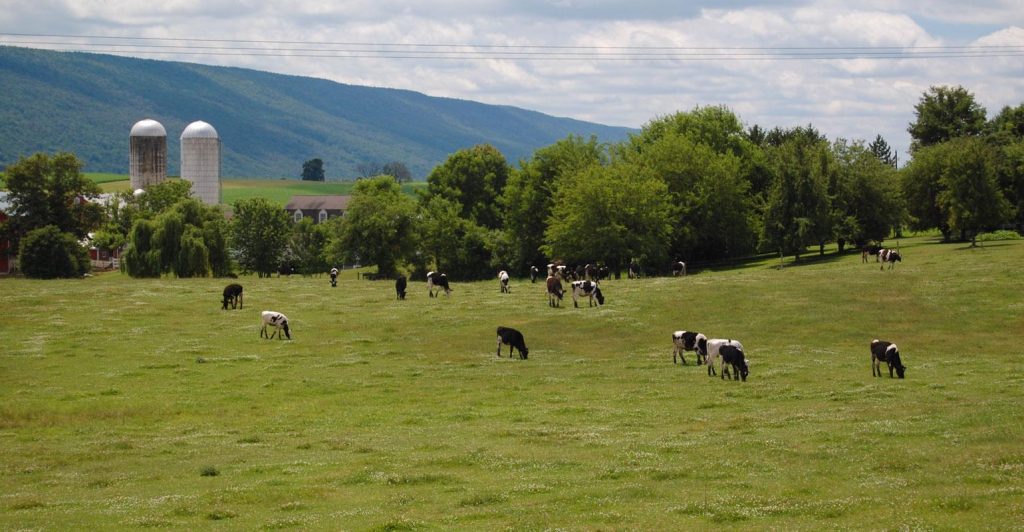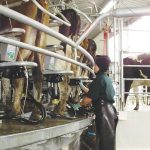
Pennsylvania’s Dairy Future Commission has issued a report with a wide range of recommendations on how to fix the state’s dairy industry. The ideas range from extending the 17-day code for fluid milk to supporting dairy checkoff initiatives to increase dairy innovation and milk utilization.
What’s the Dairy Future Commission you ask? It was established during the 2019-20 session of the Pennsylvania Legislature as part of a larger package of initiatives to help the state’s dairy industry. It designated a 24-member committee, several of whom were farmers, to work on the commission for a year and report their findings and recommendations on what changes could be made to help the dairy industry in the Keystone State.
You can read the full report here. It includes many recommendations to increase milk and dairy consumption and getting whole milk back in schools. These are good things, of course, because if people consume more dairy, that’s better for farmers in the long run.
But if you’re hoping for more structural change to the way milk is priced, the federal government has to change the Federal Milk Marketing Order system, and there is no guarantee that will happen.
Still, the commission put its support behind two important items: Eliminating bloc voting on federal order amendments and recalculating Class I differentials.
According to American Farm Bureau Federation, the Agricultural Marketing Agreement Act allows dairy cooperatives to bloc vote on amendments to the federal order program on behalf of its members. AFBF says that cooperatives are not required to provide each producer a description of the question presented, nor do they have to provide a statement on how the cooperative plans to vote on their behalf.
The commission recommends USDA review the federal order system and eliminate bloc voting completely. For its part, AFBF supports modified bloc voting, which would require a cooperative, if it plans to bloc vote, to first notify its members on how it intends to vote. If a producer elects to vote individually, the cooperative must inform them of the procedures to cast an individual and confidential ballot.
Class I differentials are set by Congress and, according to the report, haven’t been adjusted in 20 years. The report recommends Class I differentials be based on today’s transportation costs, the location of milk supplies and the location of processing plants.
Now, none of these recommendations have any teeth unless government leaders make it happen. If you’re a dairy farmer in Pennsylvania, you must apply the pressure. The Center for Dairy Excellence has an outreach toolkit where farmers can download letters and other resources.
Specific industry recommendations
I’ve broken down some of the recommendations that could be implemented within a year:
Lower SCC limit to 400,000. The report states that lowering the upper limit of SCC in milk to 400,000 somatic cells per milliliter would “strengthen the commitment” of farmers to produce high-quality milk for consumers.
More flexibility for on-farm milk spreading. This became an issue this spring as a result of widespread milk dumping.
The state authorized a temporary suspension of certain manure and waste land applications so farmers could spread milk as a fertilizer rather than just dumping it outright. The report recommends short-term waivers of nutrient management and CAFO plans to allow injection of milk into the soil as well as providing money to pay farmers the cost of having to do injection.
Exempting milk trucks from weather travel bans. This is an issue in winter in certain areas where heavy snow forces governments to close local and state roads, leaving farmers to dump milk because it couldn’t be picked up.
The report recommends the legislature pass a bill to exempt milk trucks from weather-related commercial vehicle travel bans.
Allowing whole milk in schools. While the title in the report is “Improve the School Milk Experience,” this is clearly an effort to pressure the federal government to allow schools to offer a choice of flavored and unflavored milk, as well as whole milk.
Require milk contracts or member agreements. The report recommends all milk producers and buyers maintain a contract-member agreement, including a notice period when either party can exit, and enforceable action if either party is in breach of the contractagreement.
If you live in New York state or Maryland, you’re probably thinking, “why should I care?” Well, many issues affecting dairy farmers cross state lines, so make sure you’re paying attention because what happens in Pa. could eventually affect you, too.
I’ve seen many “commissions,” whether dairy or otherwise, come and go with great ideas and recommendations but no action. It’s up to you to make sure this time is different.

























